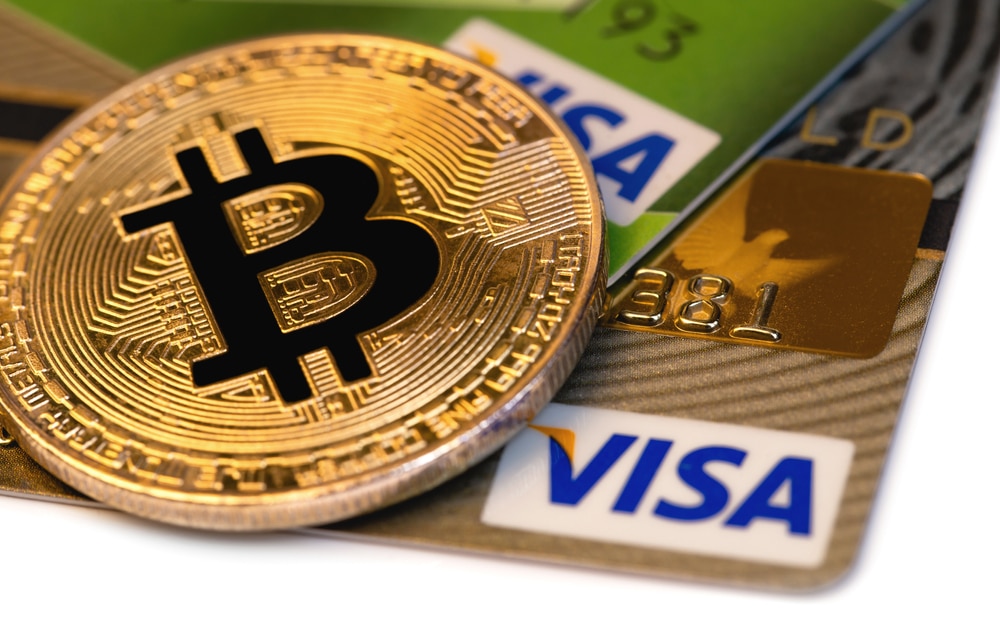
Visa Payments to Leverage Several Blockchains in Support of CBDC and Tokenized Deposits
A post by Cuy Sheffield cited skepticism linked to an early asset, when sluggish and chirping modems were the standard. The statement attracted scrutiny of Visa payments in the wake of widespread blockchain technology.
A blog publication on Wednesday by Cuy Sheffield, Visa’s Head of Blockchain, claimed that for all its flaws and blowups, blockchain technology is similar to an early internet that advanced from vague to ever-present. On behalf of the financial services giant, he wrote that they see considerable potential for blockchain platforms. Besides, blockchains and the early internet share some similarities, especially more than their fair share of hecklers, critics, and doubters.
Blockchain Technology Destined for Maturity in Ten Years
Sheffield suggested that in terms of efficacy, ease of use, and associated costs, blockchain technology will possibly mature over the next ten years. Despite BlackRock and PayPal being current examples of major companies moving deeper into crypto, the post by Sheffield catches an emerging tone among respectable financial companies such as Visa.
He wrote that in the future, he expects Visa’s payment platform to involve more than just several currencies as well as bank settlement rails. In this case, they should also entail several stablecoins, blockchain platforms, and central bank digital currencies or tokenized deposits.
Sheffield’s post stressed Visa’s current work in embracing Solana and stablecoin USDC to offer a more ‘contemporary alternative’ for sending or receiving funds. Further, it stressed the potential of blockchain to enhance the efficacy of making settlements and improving the ease of transactions across borders.
For persons not familiar with the early internet’s synthesized chips, Sheffield claimed that internet technology has come a long way since the dial-up days. Besides, user experience has moved from ‘undependable and sluggish’ to a universal force.
The Visa executive wrote that it was common for opinion writers to mock by claiming that the fledging web was just an upstart technology project lacking an actual future. This form of perception has not gotten better with time.
Visa Executive Revisits Critics of Bitcoin
Despite not being referenced in Sheffield’s post, Paul Krugman, a Nobel Prize-winning economist, shockingly asserted in 1998 that by around 2005, it would be evident that the effect of the internet on the economy would not be better as compared to the fax machine.
In 2013, Paul likened Bitcoin dealings to forking ‘over a bag containing $100 bills in a dark valley’ to another person. He also stressed the need to stop innovating in the greenback’s ground.
Last week, Paul criticized ‘cryptocurrency cultism’ by calling it a public policy debate principle that ‘rich tech bros’ are more likely to lean towards. He attributed individuals’ crypto interest to persons likely to believe they have a better understanding of money as compared to economists.
Visa Payments to Leverage Several Blockchains in Support of CBDC and Tokenized Deposits
A post by Cuy Sheffield cited skepticism linked to an early asset, when sluggish and chirping modems were the standard. The statement attracted scrutiny of Visa payments in the wake of widespread blockchain technology.
A blog publication on Wednesday by Cuy Sheffield, Visa’s Head of Blockchain, claimed that for all its flaws and blowups, blockchain technology is similar to an early internet that advanced from vague to ever-present. On behalf of the financial services giant, he wrote that they see considerable potential for blockchain platforms. Besides, blockchains and the early internet share some similarities, especially more than their fair share of hecklers, critics, and doubters.
Blockchain Technology Destined for Maturity in Ten Years
Sheffield suggested that in terms of efficacy, ease of use, and associated costs, blockchain technology will possibly mature over the next ten years. Despite BlackRock and PayPal being current examples of major companies moving deeper into crypto, the post by Sheffield catches an emerging tone among respectable financial companies such as Visa.
He wrote that in the future, he expects Visa’s payment platform to involve more than just several currencies as well as bank settlement rails. In this case, they should also entail several stablecoins, blockchain platforms, and central bank digital currencies or tokenized deposits.
Sheffield’s post stressed Visa’s current work in embracing Solana and stablecoin USDC to offer a more ‘contemporary alternative’ for sending or receiving funds. Further, it stressed the potential of blockchain to enhance the efficacy of making settlements and improving the ease of transactions across borders.
For persons not familiar with the early internet’s synthesized chips, Sheffield claimed that internet technology has come a long way since the dial-up days. Besides, user experience has moved from ‘undependable and sluggish’ to a universal force.
The Visa executive wrote that it was common for opinion writers to mock by claiming that the fledging web was just an upstart technology project lacking an actual future. This form of perception has not gotten better with time.
Visa Executive Revisits Critics of Bitcoin
Despite not being referenced in Sheffield’s post, Paul Krugman, a Nobel Prize-winning economist, shockingly asserted in 1998 that by around 2005, it would be evident that the effect of the internet on the economy would not be better as compared to the fax machine.
In 2013, Paul likened Bitcoin dealings to forking ‘over a bag containing $100 bills in a dark valley’ to another person. He also stressed the need to stop innovating in the greenback’s ground.
Last week, Paul criticized ‘cryptocurrency cultism’ by calling it a public policy debate principle that ‘rich tech bros’ are more likely to lean towards. He attributed individuals’ crypto interest to persons likely to believe they have a better understanding of money as compared to economists.
Editorial credit: Primakov / Shutterstock.com




